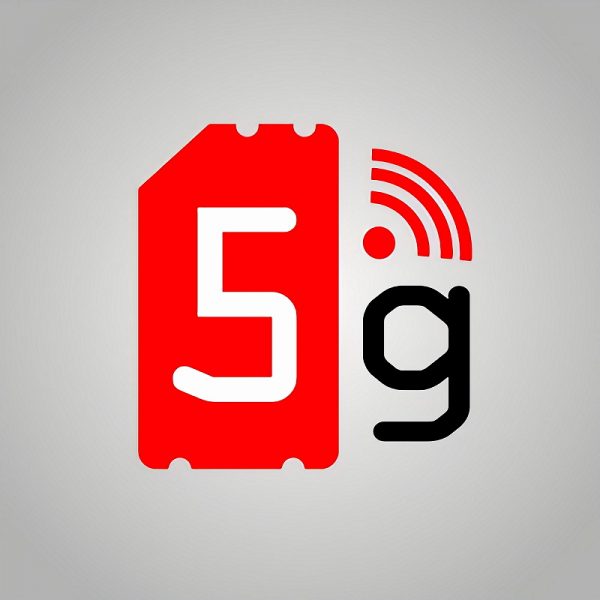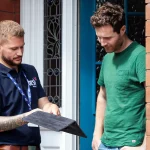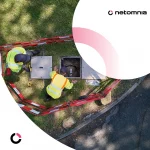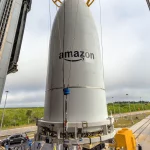Three UK Tops Ookla’s H1 Study of 5G Mobile Broadband Speeds

Ookla, which operates the popular Speedtest.net service, has published their latest Q1-Q2 2023 (H1) study into the performance of 5G based mobile broadband networks in the United Kingdom, which once again finds that Three UK continues to deliver the fastest median download speed (265.75 Mbps).
Mobile data performance is a difficult thing to pin down because related users are always moving through different areas (indoor, outdoor, underground etc.), using different devices with different capabilities and the surrounding environment (weather, trees, buildings etc.) is ever changeable.
All of the above can impact your service, and that’s before we even consider the other issues, such as network (backhaul) capacity at different cell sites or differing spectrum ownership between mobile operators. Nevertheless, Ookla’s latest study attempts to illuminate all this by comparing 1,001,734 user-initiated 5G tests, taken on their Speedtest iOS and Android mobile apps, from all the major UK mobile operators.
Advertisement
Overall, Three UK delivered the fastest download speeds, while Vodafone came top for both uploads (13.72Mbps) and latency times (30ms) – although the latency and upstream performance remains hobbled by older 4G infrastructure (even on 5G connections) and is not remarkably different between any of the operators.
Ookla’s UK 5G Mobile Speeds for H1 2023 (vs H2 2022)
Median Download Speed
Three UK – 265.75Mbps (292.57Mbps)
Vodafone – 140.27Mbps (157.55Mbps)
EE – 99.06Mbps (143.70Mbps )
O2 – 70.88Mbps (104.23Mbps)
Median Upload Speed
Vodafone – 13.72Mbps (15.60Mbps)
Three UK – 13.03Mbps (13.44Mbps)
EE – 12.88Mbps (14.71Mbps)
O2 – 8.98Mbps (10.68Mbps)
Median Latency (lower figures are faster)
Vodafone – 30ms (29ms)
EE – 31ms (29ms)
O2 – 32ms (32ms)
Three UK – 34ms (35ms)
Clearly there’s been a decline in performance, across the board, since last year. But we suspect that’s partly a reflection of the fact that 5G coverage is now starting to mature (e.g. both EE and Three UK are closing on 70% population coverage). More users can also mean a greater draw on network capacity, which could be another factor.
Meanwhile, O2 continues to be the slowest network for 5G speeds, which is disappointing given how they’re now part of the same company as Virgin Media, which has a good reputation for its fixed broadband speeds.
Mark is a professional technology writer, IT consultant and computer engineer from Dorset (England), he also founded ISPreview in 1999 and enjoys analysing the latest telecoms and broadband developments. Find me on X (Twitter), Mastodon, Facebook, BlueSky, Threads.net and Linkedin.
« CityFibre Officially Launch 2.5Gbps FTTP Home Broadband Tier
Big UK Mobile and Broadband ISPs Commit to Cut Emissions »






















































Understandable. Three seems to be fast for all I know who use them on mobiles at least so makes sense a dedicated device is faster
Truth be told, O2’s 5G isn’t that bad, at least in the M25. That is, except for London Bridge, full bars yet couldn’t load a Google search on either 4G or 5G
I am on O2 and have found that it is the worst when it comes to displaying the “5G” label on people’s phones. Basically even when a tower is 5G capable and although it might just be transmitting 4G signal to your phone, it would still show as “5G” which is frankly misleading. This did not happen when I was on Vodafone last year.
It all depends on the type of 5G you’re receiving. N78 5G is fast, but the long range N28 is as fast as slow 4G.
The problem with O2’s 5G is that they more N28 5G than N78. Three is the opposite.
So Three and Vodafone are leading the 5G pack according to these results. Perhaps they will be the network to beat when they merge (although unlikely to win in the Customer Services stakes!)
Depends if the customer service is run by Three I’ve been a Three user now for since it started in the early 2000’s customer service is one thing Three is very good at in my opinion
Using Three, their 5G network is amazing, very fast and reliable. Their 4G network.. Less said the better.
I am more suprised at EE, using their 5G, Granted their coverage is great… the speed never amazes me.
I agree. For me though, I choose EE over 3 due to the larger coverage and brilliant outdoor 4G.
On Three, you can go from 1Gbit 5G to 4G which doesn’t load a page.
Their 4G is definitely improving with newer hardware. Some areas are going from 1mbps 4G to 20mbps+ 4G. They definitely making a lot of changes but lagging behind
Obviously experiences vary across the country, but I was on Three for two months (through SMARTY) in central London and it was unusable. The towers are easily overwhelmed in busy areas, and I’ve had zero coverage in other areas. I’ve switched back to O2, although they are certainly the worst in the pack for speeds, their coverage is still more reliable. Ideally, I would switch to EE but the prices they charge are excruciating.
A good trick I’ve found for getting good prices on EE is to go via the BT website and say that you’re a BT broadband customer. They never actually check, they just give you the discount regardless.
I don’t know how anyone can seriously rely on 3 as their sole provider. Their 5G is extensive and very fast, but if you venture far from 5G and fall on to 4G, then it becomes unusable in most cases. Phone calls don’t work, pages don’t load. Then you often get kicked on to 3G which isn’t much better.
I have a similar experience. I’m with three and i have 4 business lines. For 5G data at home, they’re amazing. £15 a month unlimited, real IP with no CGNAT (nobody else in the UK does this) and over 600mbit and no stupid caps/fair use rubbish. But for calls they’re terrible and even with WiFi calling it’s all broken up and unintelligable. If I have to go out and about to see a client, or even just going out for personal reasons, I have to active my second line (o2) because if I don’t I might find myself without data/voice even though I have a signal on 4G/3G with three. I don’t know why it’s this way, but I think if you want pure 5G data in a fixed location, they’re fantastic. If you want fast internet as well as a working phone service, I’d stick to EE.
Not sure I trust Ookla on this. EE seem to throttling tests done using Speedtest so their numbers will have slowed. Not sure why, but tther tests services give far more reliable numbers it seems.
EE now also has speed caps on many of their plans.
With this said, on pure top speeds, I find Three to always outperform EE on 5G.
Would love to have 5G broadband where I live and I dont live in the middle of no where.
Anyone here know why it takes at least two years after planning permission was granted to build a pole and go live? At this rate itll be 20 years (or more because of the amount of planning rejections too) Might as well give up.